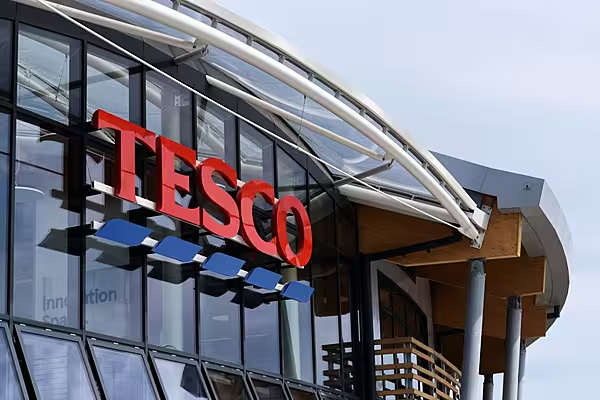Asda will be scrutinised for clues on whether US owner Walmart wants to line it up for sale or to compete longer term in the cut-throat British grocery market when it gives its first trading update since a planned Sainsbury's takeover collapsed.
Britain's competition regulator last month ruled Sainsbury's £7.3 billion (€8.5 billion) takeover of rival Asda cannot proceed, closing one exit route for Walmart.
Asda, which accounts for 6% of Walmart's turnover, is due to publish a first-quarter update on Thursday, when the world's biggest retailer posts quarterly earnings.
Analysts have speculated that Walmart will try to sell Asda to private equity or consider a stock market listing for the business it acquired for £6.7 billion (€7.8 billion) in 1999.
But a source with direct knowledge of the matter said Walmart is in no rush to make a decision, partly because Asda is performing relatively well under chief executive Roger Burnley.
Consecutive Quarters Of Growth
Asda has reported seven consecutive quarters of like-for-like sales growth, thanks to a strategy focused on lower prices, more innovation in own-brand products, better store standards and improvements in its e-commerce operations.
A read across from monthly industry data produced by researcher Kantar indicates that Asda will likely report an eighth straight quarter of growth.
Walmart has been focused on turning around its international business by targeting higher growth markets such as China and India and exiting or tying up with local players elsewhere.
When the Sainsbury's deal was blocked on 25 April Judith McKenna, CEO of Walmart International, said its focus was on "continuing to position Asda as a strong UK retailer".
Walmart "will ensure Asda has the resources it needs to achieve that," McKenna added at the time.
Profit Relief
Burnley, like his predecessor Sean Clarke, has benefited from Walmart's 2016 decision to relax profit demands of around £1 billion (€1.16 billion) on Asda, allowing it to cut prices and stem the loss of market share to German-owned discounters Aldi and Lidl.
That strategy shift meant Asda's operating profit fell 13% to £735.4 million (€852.11 million) in 2017, its latest published accounts.
"The issue for Asda is what is Walmart going to tell it what its profit target is," a senior industry executive said.
"If Walmart says 'we would like you to go back to the profitability you had three years ago', then Asda can't execute their current strategy. It's not designed to deliver that level of profit," he said.
Another source with connections to Asda said that scenario would mean Burnley having to take out unprofitable, or barely profitable, stores, and cut staff numbers.
"But I suspect they'll allow the tap to stay on ... because that makes it more attractive for (a future) sale."
While Sainsbury's CEO Mike Coupe, the main architect of the deal, has been heavily criticised for its failure, Burnley has emerged relatively unscathed.
With the exception of one bruising appearance in front of lawmakers in June, Burnley has kept a low public profile since the deal was announced, which insiders say partly reflected his ambivalence towards it.
News by Reuters, edited by ESM. Click subscribe to sign up to ESM: European Supermarket Magazine.













